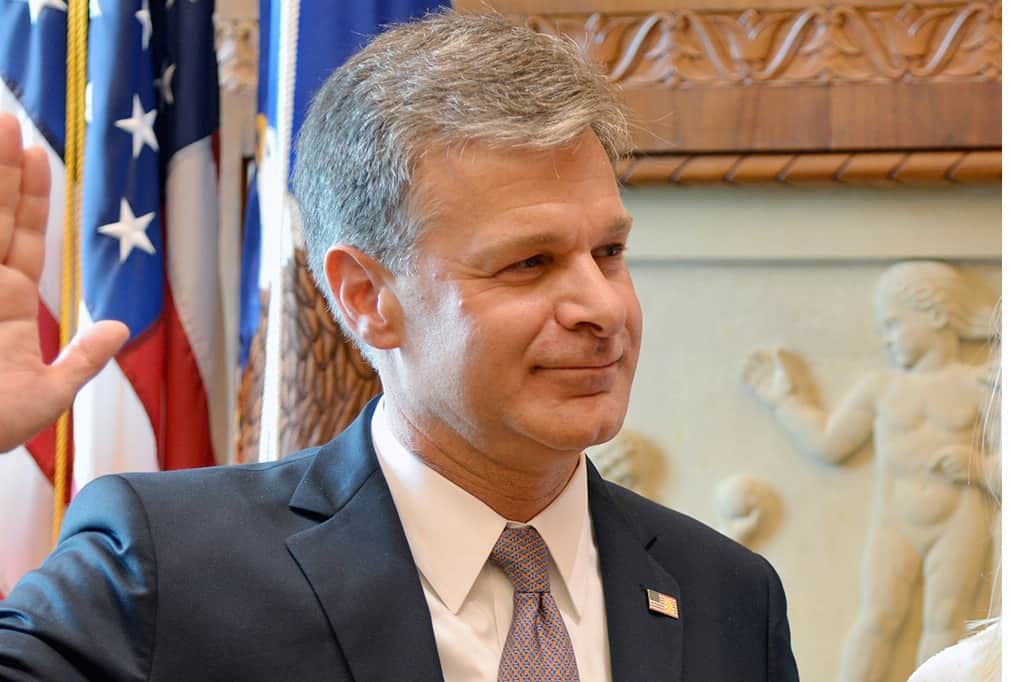The FBI wants the tech industry to help unlock thousands of smartphones and tablets involved in criminal cases each year.
FBI Director Christopher Wray did not single out any companies during his talk at a cybersecurity conference today. Still, Apple certainly sits at the top of his wish list.
In 2015, the FBI asked Apple for help with a password-protected iPhone owned by the San Bernardino shooter. Beyond that, the agency wanted a way to access any iOS device. Apple CEO Tim Cook adamantly refused, on the grounds that deliberately putting a chink in the iPhone’s security would open the handsets to being hacked by criminals.
That high-profile standoff made Cook a hero to some, even as the FBI slammed him for being a “hypocrite” for his stance.
FBI searches for way to unlock iPhones
Speaking at the Boston Conference on Cyber Security (.pdf) today, the FBI director stopped short of asking for a back door into iOS or any other operating system. However, Wray said the bureau needs some serious help. Last year, the FBI failed to gain access to the contents of 7,775 computers. That total represents about half of all devices involved in the bureau’s criminal cases.
“I’m open to all constructive solutions,” he said, “solutions that take the public safety issue seriously.”
Wray also said the bureau actually wants people to own secure smartphones — up to a point.
“The FBI supports information security measures, including strong encryption,” he said. “Actually, the FBI is on the front line fighting cybercrime and economic espionage. But information security programs need to be thoughtfully designed so they don’t undermine the lawful tools we need to keep the American people safe.”
Wray promised that iPhone-hacking tools the FBI creates would be used strictly for law enforcement.
“We’re not interested in the millions of devices used by everyday citizens,” he said. “We’re only interested in those devices that have been used to plan or execute criminal or terrorist activities.”
There is a solution … sort of
In 2015, the FBI turned to Israeli company Cellebrite to unlock the iPhone used by the San Bernardino shooter. The bureau gleaned no useful information from the device in that case, but Cellebrite’s pricey service remains an option for those thousands of other devices Wray wants to access. A second company namedGrayshift recently began offering a similar service.
These companies access the devices by exploiting flaws in iOS security known only to themselves, combined with brute-force passcode attacks. Apple is working to find and close the exploits they use. If the iPhone-maker succeeds, Cellebrite and Grayshift theoretically would be unable to hack into any iPhone or iPad.
That’s why the FBI wants a permanent solution.


